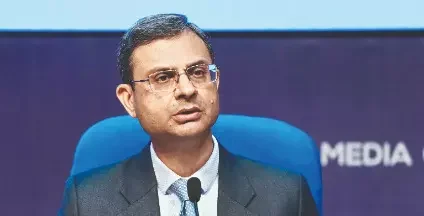NEW DELHI: With ongoing free trade agreement (FTA) talks, businesses for the circular economy will unlock circular value and further enhance collaborations and relations between India and the European Union (EU), said an EU official on Thursday, indicating that circular economy is part of the FTA talks.
In June 2022, India and the 27-nation EU bloc resumed negotiations for a comprehensive FTA, an investment protection agreement and a pact on geographical indications after a gap of over eight years. Key areas of discussion include agriculture and dairy, government procurement, labour standards, sustainable development, and investment-related issues.
“In 2025, with ongoing FTA negotiations, recent EU colleagues’ visits and further strengthening of EU-India relations, and business space for circular economy, it may mean unlocking circular value for this dynamic and further enhanced collaboration between the EU and India,” Ewa Suwara, Deputy Head of Delegation of the European Union, said on Thursday at the Confederation of Indian Industry (CII) Business Summit.
The EU and India are working on multiple projects together to promote a circular economy, aiming to reduce waste, increase resource efficiency, and foster sustainable development. Projects like the EU-India Resource Efficiency and Circular Economy Initiative (EU-I RECEI) aim to foster sustainable value chains and create new economic and job opportunities, particularly for entrepreneurs and MSMEs, through circular economy solutions by leveraging EU expertise and best practices.
India is increasingly focusing on a circular economy to minimise waste, maximise resource efficiency, and drive economic growth while reducing environmental impact. The circular economy in India is estimated to be worth $2 trillion and create 10 million jobs by 2050.
EU-I RECEI also aims to support India in implementing the global sustainable consumption and production (SCP) agenda through the adoption of international standards and best practices in business on resource efficiency and circular economy.
In February, the India-EU Trade and Technology Council (TTC) launched two major research and innovation initiatives, with a joint investment of ₹391 crore (€41 million), to address marine plastic pollution and develop waste-to-green hydrogen technologies.
These aim to bring together researchers, start-ups, and industries from both India and the EU to find sustainable and global solutions.
These initiatives are part of the EU-India Trade and Technology Council (TTC) and are coordinated under the EU’s Horizon Europe programme, with co-funding from Indian ministries such as the Ministry of Earth Sciences and the Ministry of New and Renewable Energy. The goal is to find innovative and sustainable solutions to combat marine pollution and promote technological advancements.
Source: Business Standard

